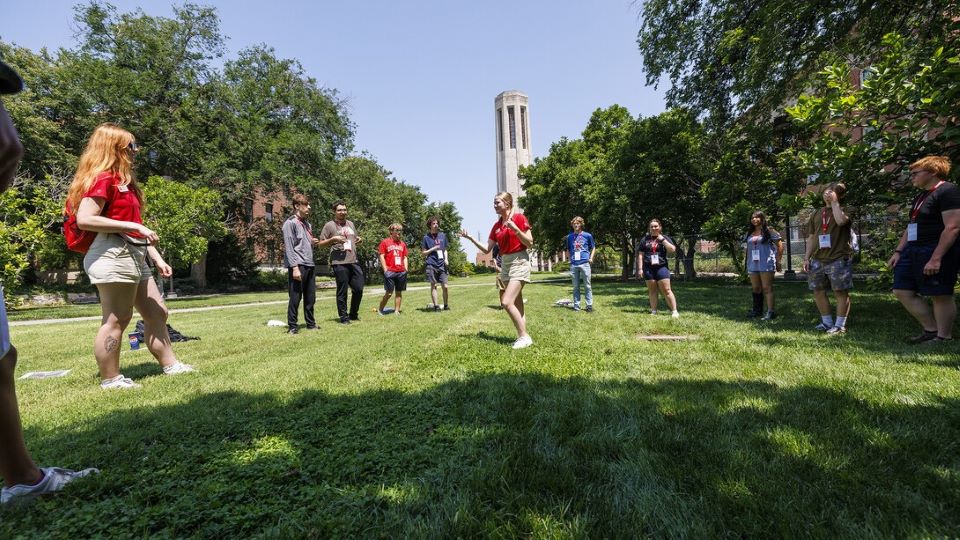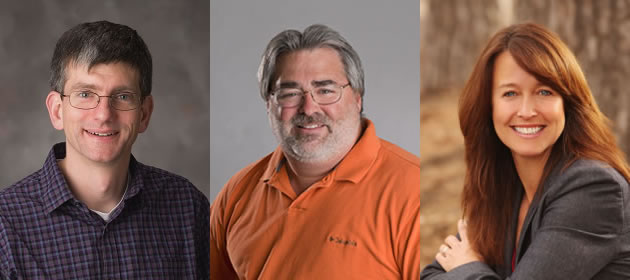
We are pleased to announce the Teaching Academy Fellows for Fall semester 2018: Chad Brassil, Calvin Garbin, and Patrice McMahon.
The initiative engages our faculty in local, national, and international conversations about essential issues in higher education, develops teaching expertise across the disciplines and at all levels of learning, and recognizes and rewards exceptional teachers.
Meet our new fellows.
Chad Brassil, biological sciences
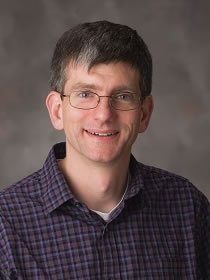
Brassil is an associate professor who specializes in mathematical modeling of ecological interactions and leads the Brassil Lab. As a fellow, he wants to widely implement study contracts to help students perform better in large-enrollment classes. The contract is a list of 11 study practices for students to follow and document.
"I'm interested in organizing a UNL symposium broadly addressing the tools/techniques that instructors can use to elevate the performance of their underperforming students," he said.
Calvin Garbin, psychology
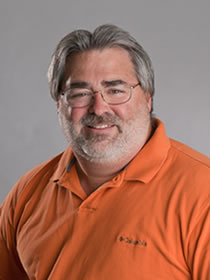
Garbin, John Weaver Professor of Psychology, teaches undergraduate and graduate research methods and data analysis classes.
"Much of my research over the last 25 years has been about how to better teach research methods and data analysis courses, at both the graduate and undergraduate levels," he said. "My emphasis is on identifying and 'tuning' strategies and tactics that are useful across the broad and interacting varieties of student learning styles and instructor teaching styles. That is, I look for best practice techniques that any teacher can use to improve the learning and performance of all students. In particular, I look for strategies that can help students successfully transition from 'learning about' to 'learning how to apply' the content and procedures of the topic being studied."
He is looking forward to leveraging the experience and wisdom of the members of the Teaching Academy to help him focus and expand this research.
Patrice McMahon, political science
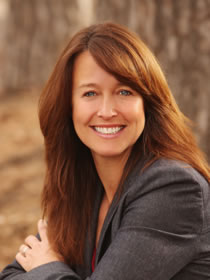
McMahon is an associate professor whose research focuses on humanitarian affairs, peacebuilding, nongovernmental organizations, and U.S. foreign policy. As a fellow, she wants to help faculty think systematically about infusing global perspectives and orientations into existing Arts and Sciences courses and emphasize the small shifts in how faculty from different disciplines can use existing resources and structures to encourage global thinking and what is sometimes called "glocalism."
"[I] want CAS students to understand how global problems impact local issues and our community (and vice versa)," she said.
- - -
The academy recognizes exceptional teachers with three-year terms as fellows during which they will participate in and lead symposia on emerging campus and national issues related to undergraduate education, mentor developing teachers, and facilitate interactive teaching workshops. The college will use this initiative to promote innovative and informed teaching among the faculty by sponsoring travel to teaching conferences and creating opportunities for faculty to engage in conversations about teaching excellence.
